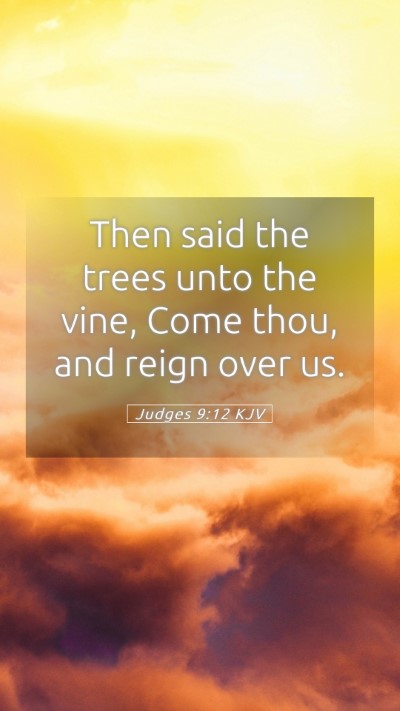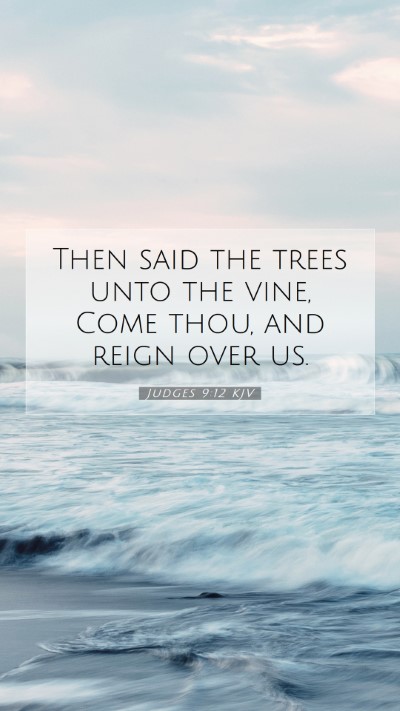Bible Verse Meaning: Judges 9:12
Verse Context: Judges 9:12 states, "And the trees said to the vine, 'Come thou, and reign over us.'" This passage presents an allegorical dialogue among the trees seeking a king, representing the desire for leadership and the challenges inherent in such decisions.
Understanding the Verse
This verse, embedded in a larger parable recounted by Jotham, emphasizes the foolishness of choosing leaders based solely on appearances or external qualities rather than their suitability and character. The trees, often symbols of strength and stability, illustrate the yearning for guidance during a time of chaos.
Key Themes
- The Search for Leadership: The trees signify the people’s quest for a ruler who could provide stability and direction.
- Folly of Choices: The choice to seek a king, particularly in asking the vine (a symbol of joy and fruitfulness) to reign, mirrors the poor decisions often made when leaders are sought hastily.
- Symbolism of Trees: Each tree represents different nations or peoples, highlighting their unique desires and motivations when it comes to governance.
Commentary Insights
Matthew Henry: Henry reflects on the nature of the trees’ consultation, noting that the line of reasoning among the trees serves to illustrate the common human tendency to prioritize external attributes over moral integrity and wisdom in leadership. He highlights that this request by the trees signifies misjudgment in selecting who should guide them.
Albert Barnes: Barnes points out the irony in the trees seeking a king, as they possess natural dignity and strength themselves. Instead of relying on their inherent qualities, they turn to others, emphasizing the theme of reliance on external sources for leadership rather than self-sufficiency.
Adam Clarke: Clarke elaborates on the vine's symbolism as a provider of sustenance and enjoyment, yet the request made to it as a future ruler may lead to undesirable consequences. This reflects humanity's inclination to choose pleasure over principled leadership, pointing to the dire implications of such choices.
Practical Applications
Daily Life: When faced with decisions regarding leadership or authority, individuals should reflect on the qualities that make a good leader beyond surface traits. The pursuit of wisdom and righteousness should guide their selections in both personal and community contexts.
Related Scriptures
- 1 Samuel 8:5-7 - The Israelites' demand for a king.
- Psalms 20:7 - Trust in the name of the Lord as a source of strength.
- Proverbs 29:2 - The effect of righteous leadership on the people.
Conclusion
In Judges 9:12, the search for leadership is fraught with the potential for misjudgment. Through careful scripture analysis, one can glean deeper insights into how to understand and interpret the meanings of Bible verses, particularly concerning governance and moral choices. This verse prompts reflection on our own decisions and the values we prioritize in leaders within our lives.


